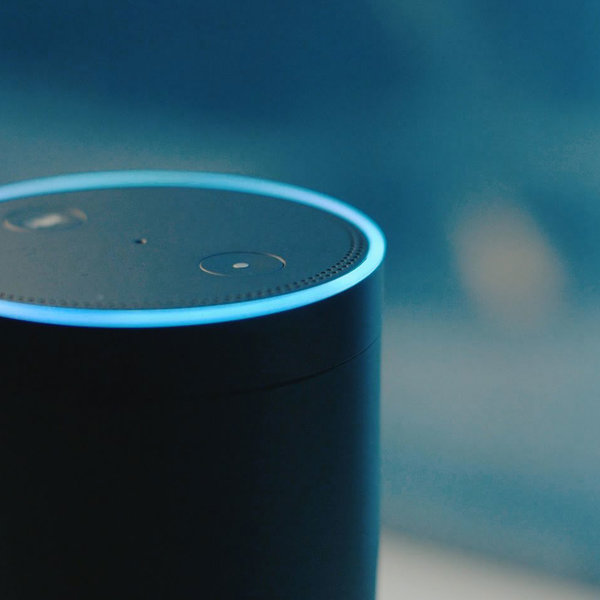
We’ve heard time and time again (and most of us can freely admit its validity) that we’re addicted to our phones to get us through our days. Observe people at any coffee shop, on public transportation or even at a party or concert and you’ll see too. From listening to music or podcasts to corresponding via social media to shopping to asking for directions, we have the solution to endless wants and needs readily at our fingertips.
Now another tool has surfaced which may be a way to keep our eyes off of a screen, but it certainly won’t change our reliance on a machine. Instead, it’ll change the way we interact with technology and seamlessly incorporate it into our daily lives.
Alexa is an intelligent personal assistant technology activated exclusively by voice - in fact, there isn’t even a screen located on any of its speaker devices. The technology, utilized through the Echo, Dot and/or Tap portable speakers, is easy for users to set up and bring along wherever your day leads you.
You’ve probably seen the commercials of users asking Alexa simple questions like, “Alexa, play Adele,” or “Alexa, what is the weather like today?” and instantly being answered. But its capabilities far surpass those simple requests.
Through its API that allows other consumer electronic devices and services to utilize its cloud technology, Alexa’s “skills,” or tasks that it can perform, has grown to over 1,000. These skills range from changing a thermostat to summoning an Uber to ordering pizza to booking flights.
Imagine having a digital assistant with you throughout the day to schedule tasks, check progress of projects and pull up reports all with one instant voice command.
Those desires are 100% attainable with apps that sync Slack, Google Docs, Google Analytics, Google Calendar, Email Assistant, Shopify, Work Time Tracker, Wunderlist and so much more to your Alexa device.
These skills have the potential to save time and ultimately money for businesses of all sizes. Instead of having to stop what you’re doing and physically look up something, you can ask Alexa and have the answer in an instant.
Furthermore, could you imagine being in the middle of a presentation when a client drops a bomb of a question to bring up a statistic from last quarter? Don’t sweat it; Alexa can pull it up in an instant. Talk about a game changer.
The prime example: shopping.
If you’re shopping for a specific brand of something like a Roomba vacuum cleaner, Alexa can work wonders. However, if you’re looking for something that requires a more visual assessment before purchasing, it can be a problem. If, for example, you’re looking for a new laptop case, and you say, “Alexa, buy me a case for my 13-inch Macbook Pro,” you may run into some issues. What about brand, material, price, functionality, etc?
For example, think about the process of “Googling” something. You type in an inquiry and choose the result that best matches your needs. We’ll need to shift gears towards marketing to machines instead of people via website SEO through which our products or services are chosen over a competitor’s by Alexa to deliver to its user.
Google is currently in the process of working with Amazon to allow paid ads on the platform, but this poses even more obstacles. For one, advertisers will need to keep in mind that people won’t be able to see their product or services, so it’ll be imperative to describe products and services in a way that users will be able to visualize without a physical image.
Additionally, Alexa will only be able to deliver one thing at a time as opposed to a small on-screen ad that still allows the user to continue what they’re in the process of doing. Paid ads on Alexa will ultimately interrupt the user’s experience, so how can we create ads that will flow into everyday use without being obtrusive?
While these crucial aspects are still being explored and perfected, Alexa is here to stay. Time to start adapting!
XDesign, Inc.
8530 Quarters Lake Road
Baton Rouge, LA 70809
225.928.9999